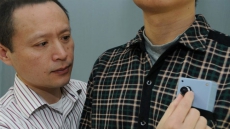Room-sharing between mother and the baby beyond the first four months is associated with less sleep and unsafe sleeping practices, new research has found.
Researchers in the US found that babies who shared a room at four months were more likely to have a blanket, pillow or other unapproved object that could increase chances of sudden infant death syndrome (SIDS), the sudden unexplained death of a child less than one year of age.
"Waiting too long (for room separation) can have negative effects on sleep quality for both parents and infants in both the short and long term," said Ian Paul, Professor of Pediatrics at Penn State College of Medicine, Pennsylvania, US.
"Inadequate infant sleep can lead to obesity, poor sleep later in life and can negatively affect parents," Paul added.

In the study, researchers used data they had collected from the INSIGHT study which included 279 mothers, who gave birth at Penn State Health Milton S. Hershey Medical Center, and their babies.
At four months, children who slept independently in their own room averaged 45 minutes longer stretches of continuous sleep than those who shared a room with a parent.
At nine months, the gap widened to one hour and 40 minutes, according to the findings published in the journal Pediatrics.
Additionally, babies who shared a room were more likely to be moved into their parent's bed overnight at both four and nine months old.
The findings challenge the American Academy of Pediatrics' (AAP) recommendations for parents to keep babies in the same room with them to sleep for the first year to prevent sudden infant death syndrome.

"Our findings showing poorer sleep-related outcomes and more unsafe sleep practices for babies who room-share beyond early infancy suggest that the AAP should reconsider and revise the recommendation pending evidence to support it," Paul said.





